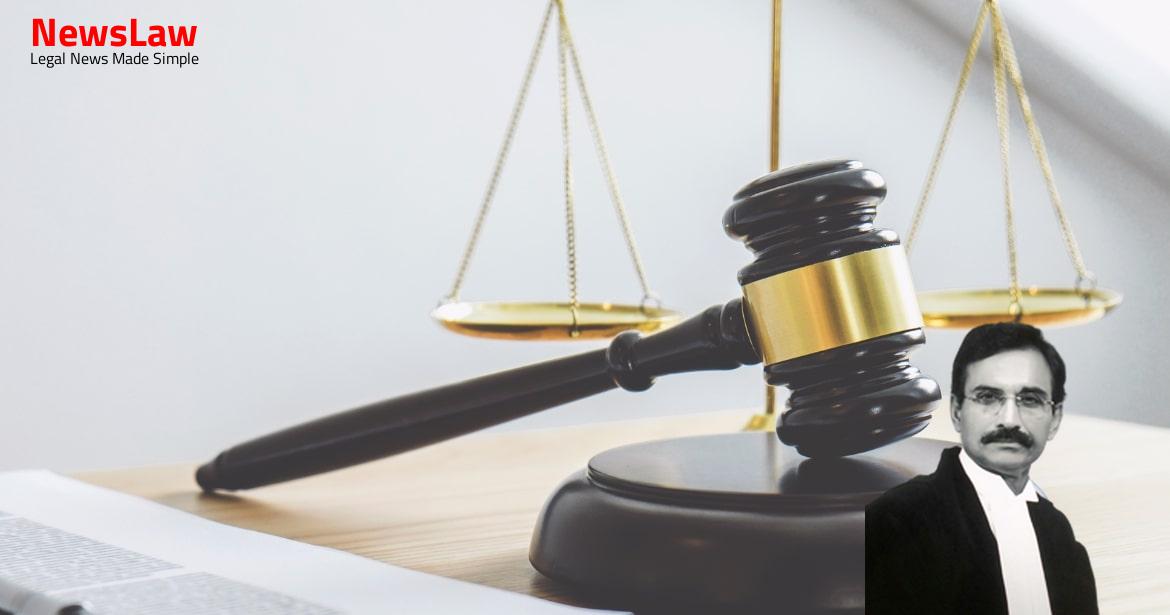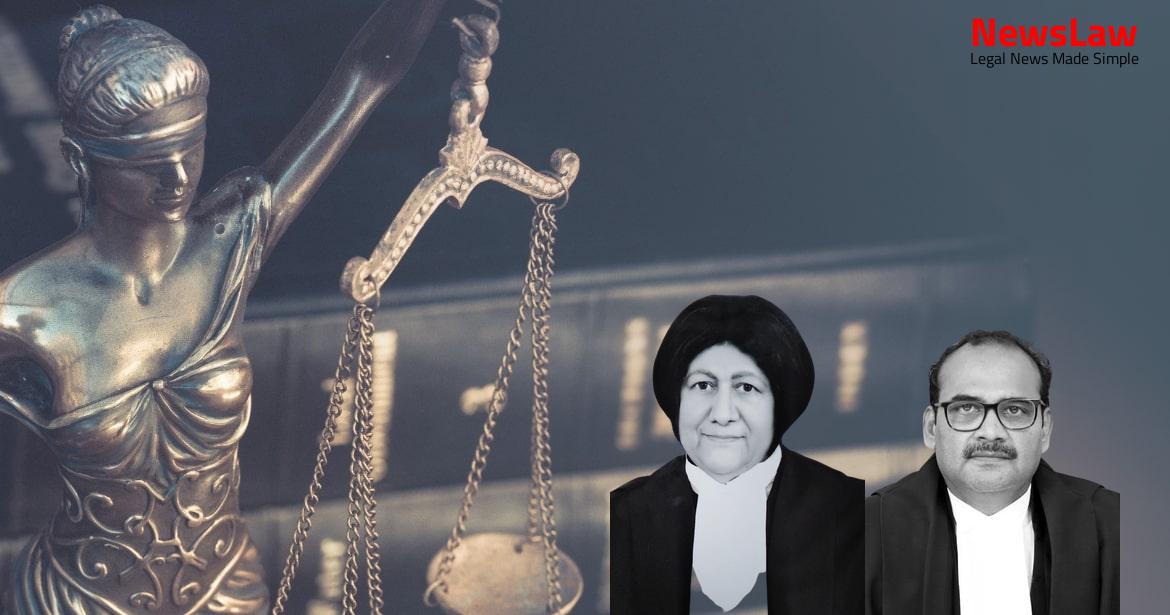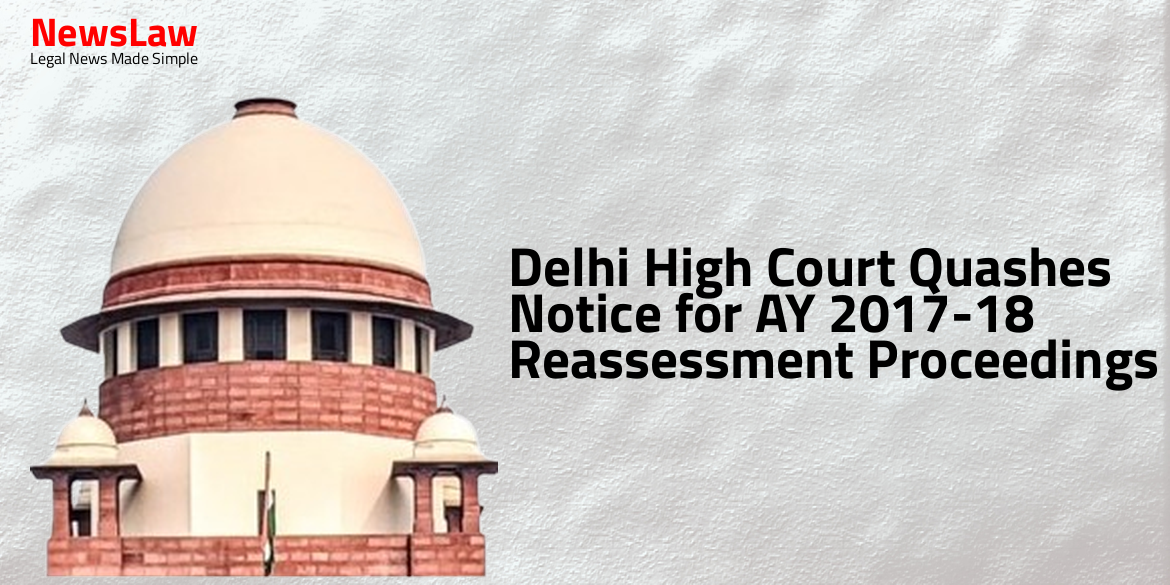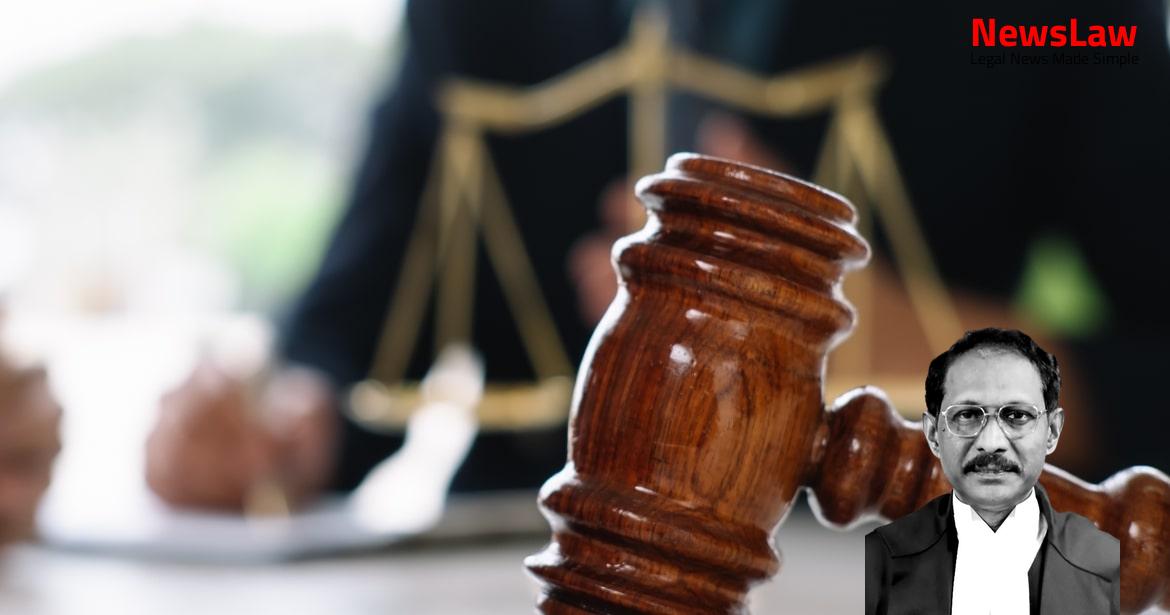The dispute over the approval of a land acquisition award has led to a legal tussle with implications for subsequent acquisition proceedings. The court’s in-depth legal analysis delves into the nuances of the approval process and its impact on the acquisition of already vested land. This case sheds light on the intricacies of land acquisition laws and the implications of approval discrepancies in such processes.
Facts
- Proceedings initiated for acquisition before the District Collector, Tinsukia.
- Appointment of the appellant as the nodal agency for dealing with acquisition proceedings.
- Letter dated 30.01.2010 seeking approval of the award and land acquisition estimate.
- Government of Assam issuing a notification expressing intention to acquire land of Gillapukri Tea Estate.
- First respondent seeking reference of matter for reassessment of compensation.
- Approval granted for estimate but dispute over approval of the award.
- Notice under Section 9 of L.A. Act for objections and claims.
- Fresh award passed on 04.01.2014 under new acquisition proceedings.
- Comparison of approval letters dated 06.01.2014 and 05.03.2010 indicating approval of estimate but not award.
- Request for fresh award under 2013 Act due to approval of award under new proceedings.
- Government decision to acquire land for setting up of a plastic park.
- Confirmation of receipt of payment by first respondent and possession handover to appellant.
- Assam Industrial Development Corporation Limited filed appeals against the judgment in Writ Appeal Nos. 219 & 220 of 2017.
- The Division Bench of the High Court of Guwahati dismissed the appeals, upholding the order of the Learned Single Judge in Review Petition Nos. 79 & 80 of 2016.
Also Read: Analysis of High Court’s Dismissal of Second Appeal
Arguments
- The appellant’s counsel argues that any fresh notification or award by the State Government regarding the first respondent’s land would be invalid as the land already vested in the State.
- The State’s need for an additional award was due to some landowners being left out in the original award approved on 05.03.2010.
- The State of Assam, representing the appellant, supports the appellant’s position and confirms that the award was approved on 05.03.2010.
- The compensation for the land was received by the first respondent, who also sought an enhancement of the compensation provided in the award.
- It is argued that once the land vested in the State, it could not be acquired again.
- The first respondent disputes the existence of an approved award on 05.03.2010 and relies on letters indicating that no award had been approved under the original proceedings.
- The State Government maintains that an award was indeed approved on 05.03.2010 and that possession of the land was taken from the first respondent and handed over to the appellant.
- The first respondent handed over possession of the land to the acquiring authority on 21.05.2010, which was then given to the appellant on 11.06.2010.
- Shri Senthil Jagadeesan, representing the first respondent, argues that two letters indicate no approval was granted by the State Government for an award under the original acquisition proceedings.
- The letters dated 21.07.2012 and 06.01.2014, relied upon by the Division Bench of the High Court, are said to establish the lack of approval for the award.
- The counsel requests the dismissal of the appeals based on this argument.
Also Read: Land Sale Agreement Appeal: Legal Consideration of Additional Evidence
Analysis
- The approval of the award on 05.03.2010 was crucial for the subsequent actions taken in the land acquisition process.
- The actions post approval included the payment of awarded sum to the first respondent and the development of the plastic project on the acquired land.
- Reopening of acquisition proceedings or re-notification of acquired land would not have been possible if the award was not approved.
- The form of the award and the land acquisition estimate were sent for approval to the State Government.
- The Deputy Commissioner requested the State Government’s approval through letters dated 30.01.2010 and 05.03.2010.
- The common belief after 05.03.2010 was that the award had been approved, necessitating actions like payment, possession handover, and reassessment of compensation.
- Possession of the land was handed over to the appellant after approval of the award on 05.03.2010.
- The State Government’s further action was to approve the award, which was already in a statutorily prescribed form.
- The letter dated 05.03.2010 explicitly directed the Industries & Commerce Department to release the balance estimated funds for payment to landowners.
- In land acquisition proceedings, the government cannot acquire its own interest.
- Once possession is taken by the state, the land vests absolutely with the state and the title of the landowner ceases.
- Initiating acquisition proceedings for already acquired land is not permissible as the government cannot acquire its own land.
- The Land Acquisition Act does not allow for the acquisition of any interest belonging to the government in the land upon acquisition.
- The settled position of law is to not nullify original awards based on subsequent events or documents.
- The High Court erred in relying on letters dated 21.07.2012 and 06.01.2014 to allow fresh acquisition proceedings.
- The appellant has been in possession of the land since 11.06.2010, which was already acquired.
- The appeals have succeeded and are allowed based on the above reasons.
Also Read: Legal Analysis Regarding Employee Inclusion in Appellant’s Case
Decision
- Orders impugned in the cases (2004) 7 SCC 362, AIR 1955 SC 298 : (1955) 1 SCR 1311, and (2020) 8 SCC 129 are set aside.
- Any pending applications related to these orders shall stand disposed of.
Case Title: ASSAM INDUSTRIAL DEVELOPMENT CORPORATION LTD Vs. GILLAPUKRI TEA COMPANY LIMITED (2021 INSC 43)
Case Number: C.A. No.-000251-000252 / 2021



